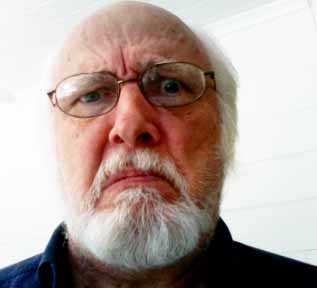 One of the best (if implicit) commentaries on choragraphy and grammatology in the tradition from Aristotle to Derrida is Potentialities, by Giorgio Agamben. We have much to learn from this study, but the immediate relevance may be inferred from the title: Potentialities is a book about human capacity, capability, grounded explicitly in a critical history of Aristotle's Metaphysics, specifically the distinction between dunamis/energeia (potentiaity/actuality). Agamben frames this history in his own project, itemizing the tasks of "the coming philosophy" (taken over from Walter Benjamin), alluding to a "potential" modality of thought. Agamben's brilliant contribution is to approach metaphysics from the side of experience -- "capacity" as experience, as a feeling of "non/power": what does it mean to say 'I can'?
One of the best (if implicit) commentaries on choragraphy and grammatology in the tradition from Aristotle to Derrida is Potentialities, by Giorgio Agamben. We have much to learn from this study, but the immediate relevance may be inferred from the title: Potentialities is a book about human capacity, capability, grounded explicitly in a critical history of Aristotle's Metaphysics, specifically the distinction between dunamis/energeia (potentiaity/actuality). Agamben frames this history in his own project, itemizing the tasks of "the coming philosophy" (taken over from Walter Benjamin), alluding to a "potential" modality of thought. Agamben's brilliant contribution is to approach metaphysics from the side of experience -- "capacity" as experience, as a feeling of "non/power": what does it mean to say 'I can'?
Agamben focuses on a feature of Aristotle's account of Being as substance (form/matter composite) that is often overlooked: Aristotle's solution to the aporia of how something not actual may yet exist. His solution was derived from his operant logic of contradiction, organizing qualities by presence/absence. Thus a potential to be or do is also to not be or not do. Indeed, what distinguishes human being is just being capable of incapacity, an im/potence that is the source of human freedom. This power of choice turns out in modernity not only to be the basis for ethics, but also of ontology: the world as we find it may be otherwise. The context is Heidegger's "destruction" of the history of Being, showing that our actual utilitarian techno-scientific civilization (the age of the world picture), saturated with commodified "goods," is the completion (telos) or realization of the Greek decision that reality is a product. Agamben uses the capacity for incapacity as the position from which to step back out of the propositional system of literacy, to follow Heidegger in the project to develop another possible metaphysics available in the apparatus, now made practical in electracy.
The emblem guiding this move is the Melville story, "Bartleby, the Scrivener: a Story of Wall Street." In Deleuze's term, Bartleby is a conceptual persona, whose story is a "vital anecdote" showing the implications in a problem field of living a certain idea. The idea in this case is to invoke this freedom of incapacity. Confronted with a routine request from his employer, Bartleby articulates his paradigmatic formula: "I would prefer not to." This preference turns out to be metaphysical, relating not just to a task at work, but to ergon as such (to actuality realized through production). Bartleby, in other words, is to "capacity" what Socrates is to "dialectic." Agamben traces Bartleby's formula back to Hellenistic skepticism, a stance of doubt, suspension of judgment with respect to reality, interruption of process, associated with the method of epoché, the phenomeological reduction revived by Husserl. Bartleby thus may be associated with the modernist break with tradition, a procedure for overcoming the modern condition of alienation through devices of estrangement (defamiliarization) that modernist philosophy shared with vanguard arts, codified in the theory and practices of Russian Formalism and Bertolt Brecht.
see Giorgio Agamben, Potentialities: Collected Essays in Philosophy, Trans. Daniel Heller-Roazen, Stanford, 1999.

